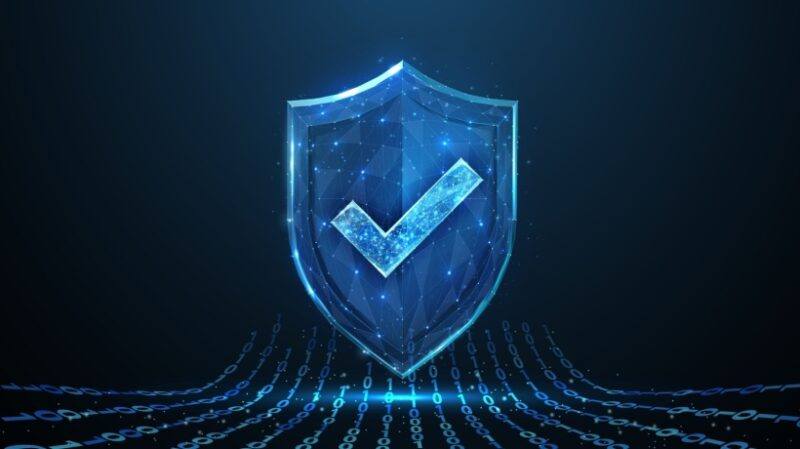
Ensuring Your Safety From Cybercriminals
Today, students have more access to higher education than ever before due to the increasing popularity of remote and online degree programs. Sadly, the realm of cybercrime—which is becoming increasingly sophisticated—has also grown over the last decade. If you’re a student interested in pursuing an online degree, this means you’ll be facing an increased risk of becoming a victim of cybercrime. Fortunately, there are ways that students like yourself can safeguard their data and pursue their education in a safe, secure manner. Any current or prospective students interested in pursuing online education can benefit from an understanding of data protection for online degrees.
Data Protection For Online Degrees: Steps To Take
Here are some key data protection practices to follow before enrolling in an online degree program.
Contact Your Institution’s IT Department For Advice
The truth is that higher education institutions are some of the top targets for cybercriminals. The reason for this is the vast amounts of private information higher education databases hold about students. Unfortunately, this makes it difficult for colleges and universities—especially those offering online classes—to uphold data ethics and protect student information in all scenarios.
Thankfully, getting in touch with your school’s IT department can help you safeguard yourself against this problem. These individuals have specialized insight into the unique types of cyberattacks they experience. As a result, they can give you distinct and relevant cybersecurity suggestions you can use to keep your information safe as a student.
Be Aware Of Common Cyber Crime Scams Impacting College Students
Beyond reaching out to your institution’s IT department, it can be helpful to cultivate a general understanding of the higher education space’s ongoing battle with cybercrime. In particular, it’s important for you to understand which types of cyberattacks are most common in this realm. This information will allow you to stay away from unsafe practices that inadvertently make your private data more accessible to criminals.
Some key types of cyberattacks that cybercriminals use to target college students and institutions include phishing scams and ransomware attacks. Phishing attacks involve cybercriminals sending people nefarious links and ransomware attacks involve cybercriminals holding private data hostage for a ransom. By understanding how these attacks work, you can ensure you’re not making yourself an easy target for cybercriminals.
Create Robust Passwords
Though this may seem obvious to many people, there are wide swaths of students who don’t take passwords seriously. As a result, many students create passwords that are easy to guess, thereby making their information more accessible to cybercriminals.
By making long passwords that include a wide variety of different types of characters, you can add a layer of protection to your data. As a student in an increasingly volatile online world, this is a step every student should make sure to take.
Take Advantage Of A VPN
A virtual private network, or VPN, is a form of cybersecurity that all students in the digital age should be taking advantage of. Essentially, a VPN allows users to hide their IP addresses and encrypt their data, making it more difficult for cybercriminals with nefarious intentions to hack them.
Given the fact that you’re using the internet on a consistent basis and using platforms that house your private information and data as a student, using a VPN is a must. Though some VPN services have a fee, this type of protection is well worth it for any online student intent on keeping their private data safe and secure.
Avoid Public Wi-Fi
While a VPN can add some layer of protection to users, it can still be dangerous to use public Wi-fi networks. The reason for this is that this act can create pathways for cybercriminals to gain access to your computer. Consequently, using public Wi-fi is akin to taking a gamble with your private data and information.
Though it may seem like an inconvenience to only connect to secure internet sources, this inconvenience is nowhere near as significant as the problems you would experience if a cybercriminal gained access to your private information. This being the case, it’s vital to avoid public Wi-fi whenever you are able to do so as an online student.
Research Cybersecurity Principles
Before stepping into the role of an online student, it can be extremely helpful to gain an understanding of general cybersecurity principles. These ideas can help inform the ways that you act online and can ultimately safeguard you from cybercriminals eager to gain access to your private data.
These cybersecurity ideas include principles such as risk management and vulnerability management. By becoming familiar with the main philosophical and practical pillars of cybersecurity, you can be sure that you’re aware of key practices that keep you safe from the growing number of cybercriminals intent on exploiting victims like you.
Install Cybersecurity Software On Devices
Chances are, you’ll usually be using your own personal technological devices to complete your online degree program. This being the case, it’s your responsibility to ensure that your device is properly optimized to safeguard you from lurking cybersecurity risks. In particular, you must have robust cybersecurity software installed and consistently updated.
For students struggling financially, there are many free cybersecurity software available. However, those who can afford it should spend a little bit of extra money to get the most robust cybersecurity defenses available. By taking this step, you can make it far more challenging for cybercriminals to steal and exploit your personal data.
Ensure Your Safety Before Pursuing An Online Degree
While online degree programs can make your educational journey feel more convenient and accessible, they can also put your data at risk. As such, it’s imperative that you take extra precautions to protect your data and steer clear of cybercrime in every way that you can. By putting in this minimal amount of extra time and effort, you will significantly increase your chances of earning a degree without putting your data at risk.




